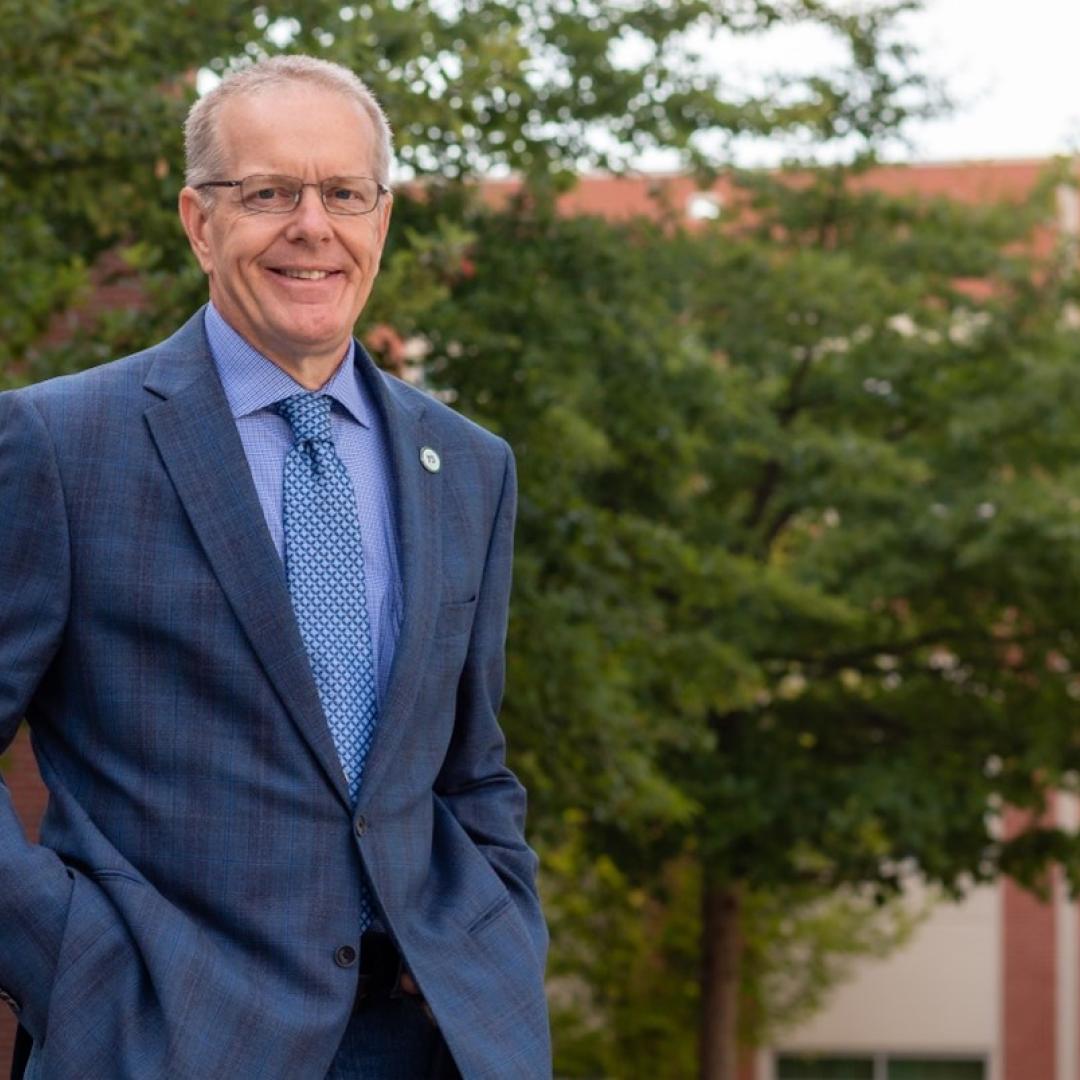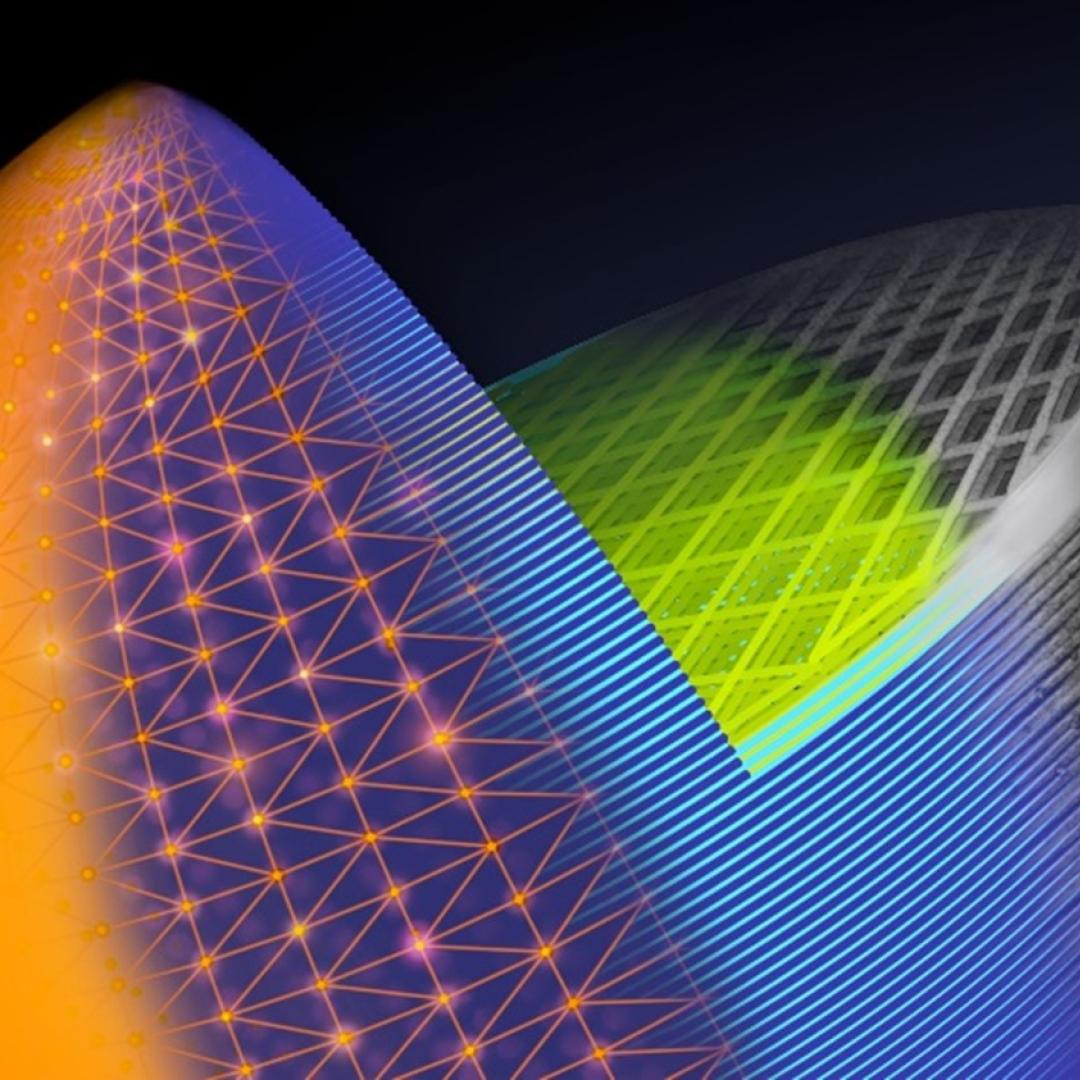
Filter News
Area of Research
- Advanced Manufacturing (3)
- Biological Systems (2)
- Biology and Environment (51)
- Biology and Soft Matter (1)
- Clean Energy (44)
- Fuel Cycle Science and Technology (1)
- Fusion and Fission (29)
- Fusion Energy (10)
- Isotope Development and Production (1)
- Isotopes (3)
- Materials (55)
- Materials for Computing (5)
- National Security (9)
- Neutron Science (11)
- Nuclear Science and Technology (39)
- Nuclear Systems Modeling, Simulation and Validation (1)
- Quantum information Science (1)
- Supercomputing (18)
News Topics
- (-) Bioenergy (92)
- (-) Chemical Sciences (65)
- (-) Molten Salt (8)
- (-) Nuclear Energy (109)
- 3-D Printing/Advanced Manufacturing (122)
- Advanced Reactors (34)
- Artificial Intelligence (91)
- Big Data (55)
- Biology (99)
- Biomedical (58)
- Biotechnology (22)
- Buildings (57)
- Clean Water (29)
- Climate Change (100)
- Composites (26)
- Computer Science (189)
- Coronavirus (46)
- Critical Materials (26)
- Cybersecurity (35)
- Decarbonization (80)
- Education (4)
- Element Discovery (1)
- Emergency (2)
- Energy Storage (109)
- Environment (195)
- Exascale Computing (37)
- Fossil Energy (6)
- Frontier (42)
- Fusion (55)
- Grid (63)
- High-Performance Computing (85)
- Hydropower (11)
- Irradiation (3)
- Isotopes (53)
- ITER (7)
- Machine Learning (48)
- Materials (144)
- Materials Science (141)
- Mathematics (8)
- Mercury (12)
- Microelectronics (3)
- Microscopy (51)
- Nanotechnology (60)
- National Security (62)
- Net Zero (14)
- Neutron Science (131)
- Partnerships (44)
- Physics (61)
- Polymers (33)
- Quantum Computing (34)
- Quantum Science (69)
- Renewable Energy (2)
- Security (24)
- Simulation (48)
- Software (1)
- Space Exploration (25)
- Statistics (3)
- Summit (57)
- Sustainable Energy (126)
- Transformational Challenge Reactor (7)
- Transportation (97)
Media Contacts

ORNL, a bastion of nuclear physics research for the past 80 years, is poised to strengthen its programs and service to the United States over the next decade if national recommendations of the Nuclear Science Advisory Committee, or NSAC, are enacted.
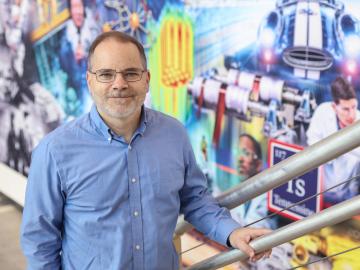
ORNL has been selected to lead an Energy Earthshot Research Center, or EERC, focused on developing chemical processes that use sustainable methods instead of burning fossil fuels to radically reduce industrial greenhouse gas emissions to stem climate change and limit the crisis of a rapidly warming planet.

Using light instead of heat, researchers at ORNL have found a new way to release carbon dioxide, or CO2, from a solvent used in direct air capture, or DAC, to trap this greenhouse gas. The novel approach paves the way for economically viable separation of CO2 from the atmosphere.

Scientist Xiaohan Yang’s research at the Department of Energy’s Oak Ridge National Laboratory focuses on transforming plants to make them better sources of renewable energy and carbon storage.
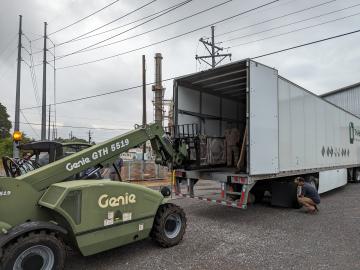
In June, ORNL hit a milestone not seen in more than three decades: producing a production-quality amount of plutonium-238
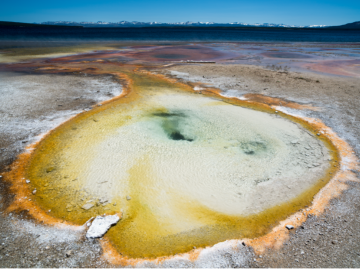
Oak Ridge National Laboratory scientists studied hot springs on different continents and found similarities in how some microbes adapted despite their geographic diversity.
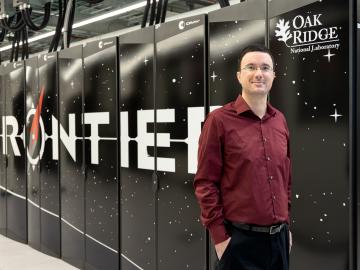
The Exascale Small Modular Reactor effort, or ExaSMR, is a software stack developed over seven years under the Department of Energy’s Exascale Computing Project to produce the highest-resolution simulations of nuclear reactor systems to date. Now, ExaSMR has been nominated for a 2023 Gordon Bell Prize by the Association for Computing Machinery and is one of six finalists for the annual award, which honors outstanding achievements in high-performance computing from a variety of scientific domains.
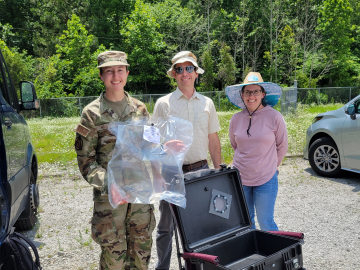
Cadet Elyse Wages, a rising junior at the United States Air Force Academy, visited ORNL with one goal in mind: collect air.

Michelle Kidder, a senior R&D staff scientist at ORNL, has received the American Chemical Society’s Energy and Fuels Division’s Mid-Career Award for sustained and distinguished contributions to the field of energy and fuel chemistry.

Rose Montgomery, a distinguished researcher and leader of the Used Fuel and Nuclear Material Disposition group at ORNL, has been selected to participate in the U.S. WIN Nuclear Executives of Tomorrow, or NEXT, class of 2023 to 2024.


